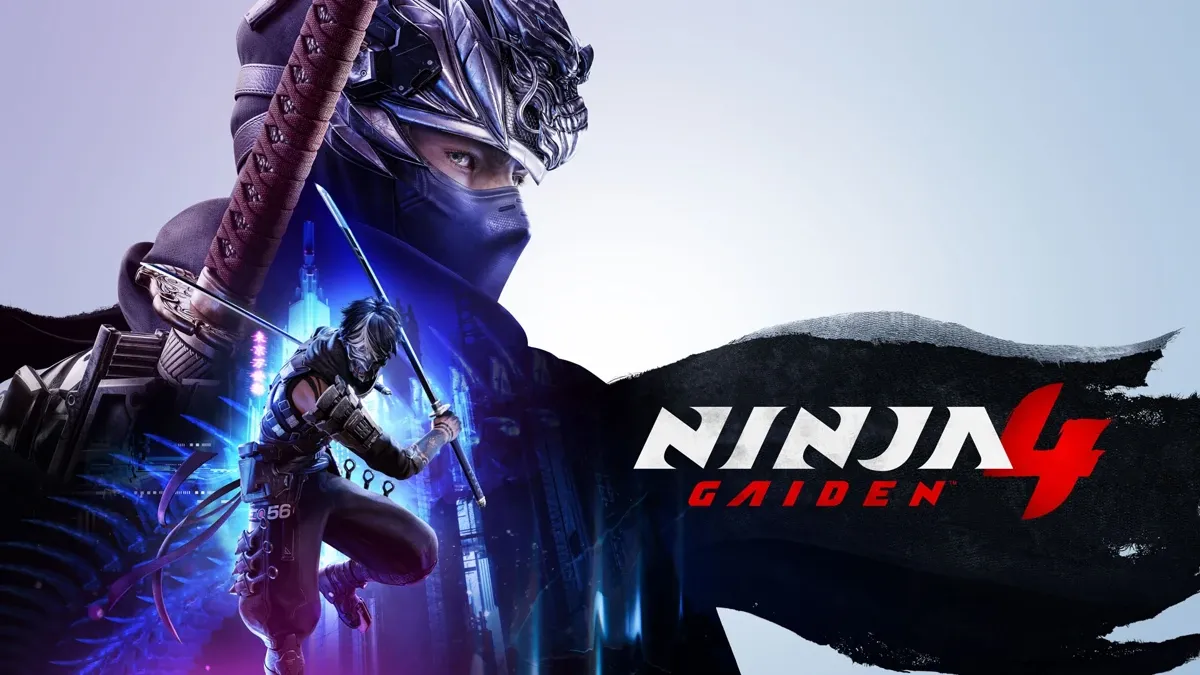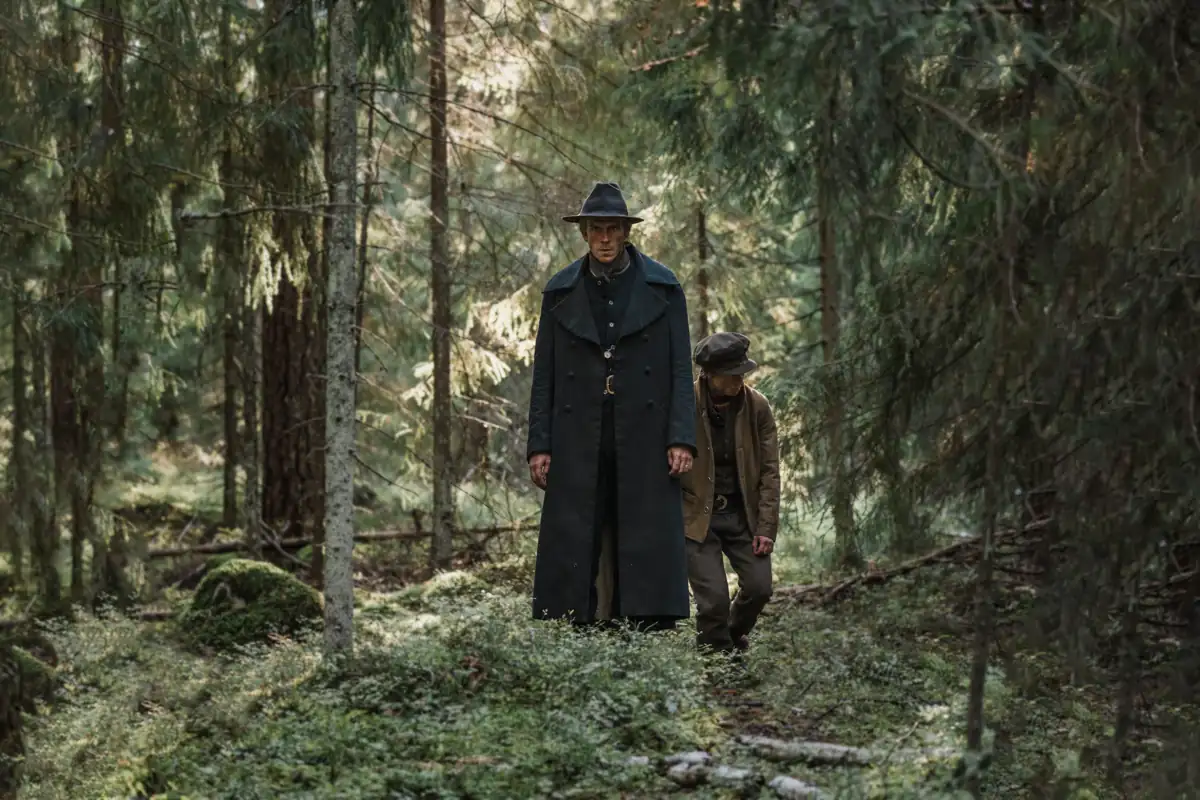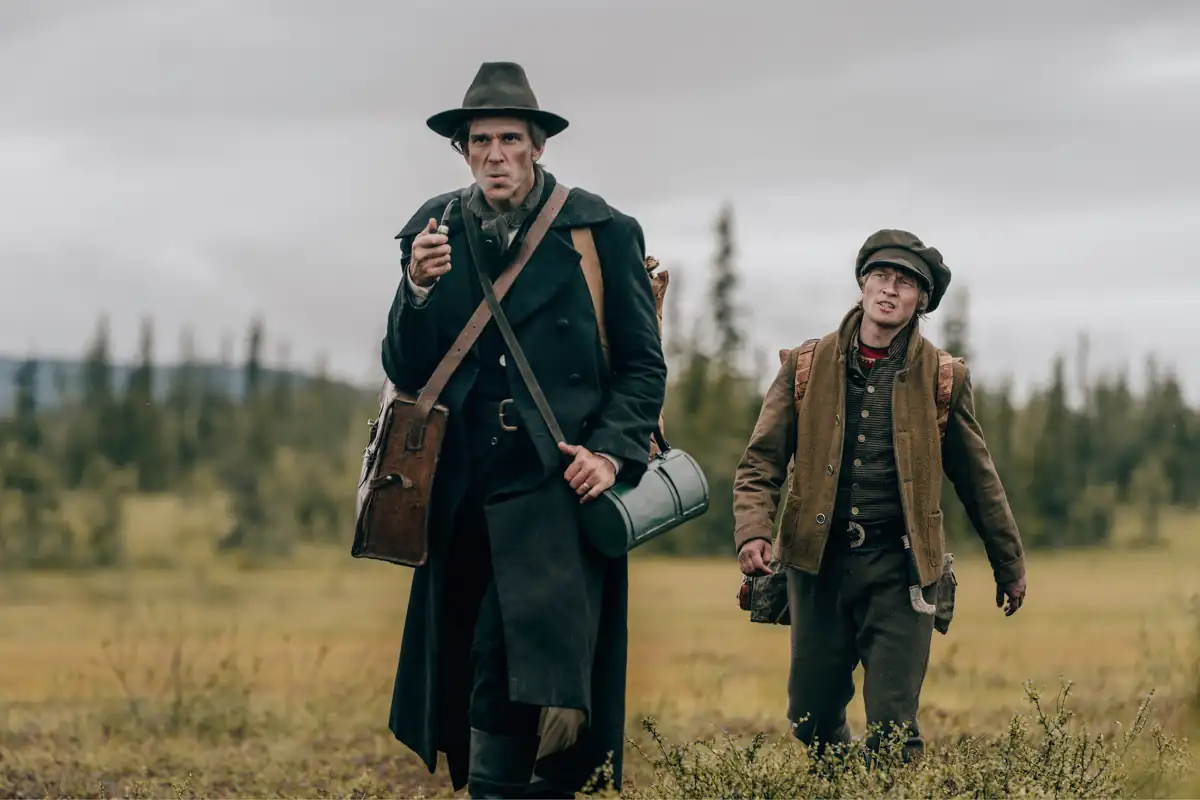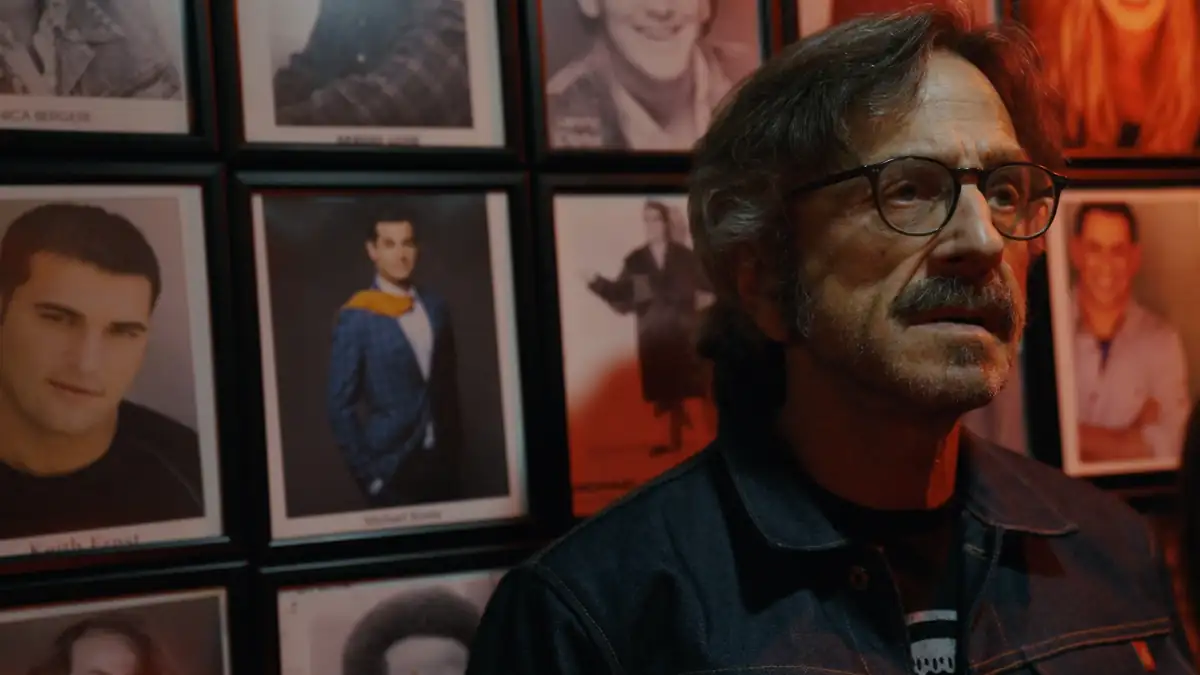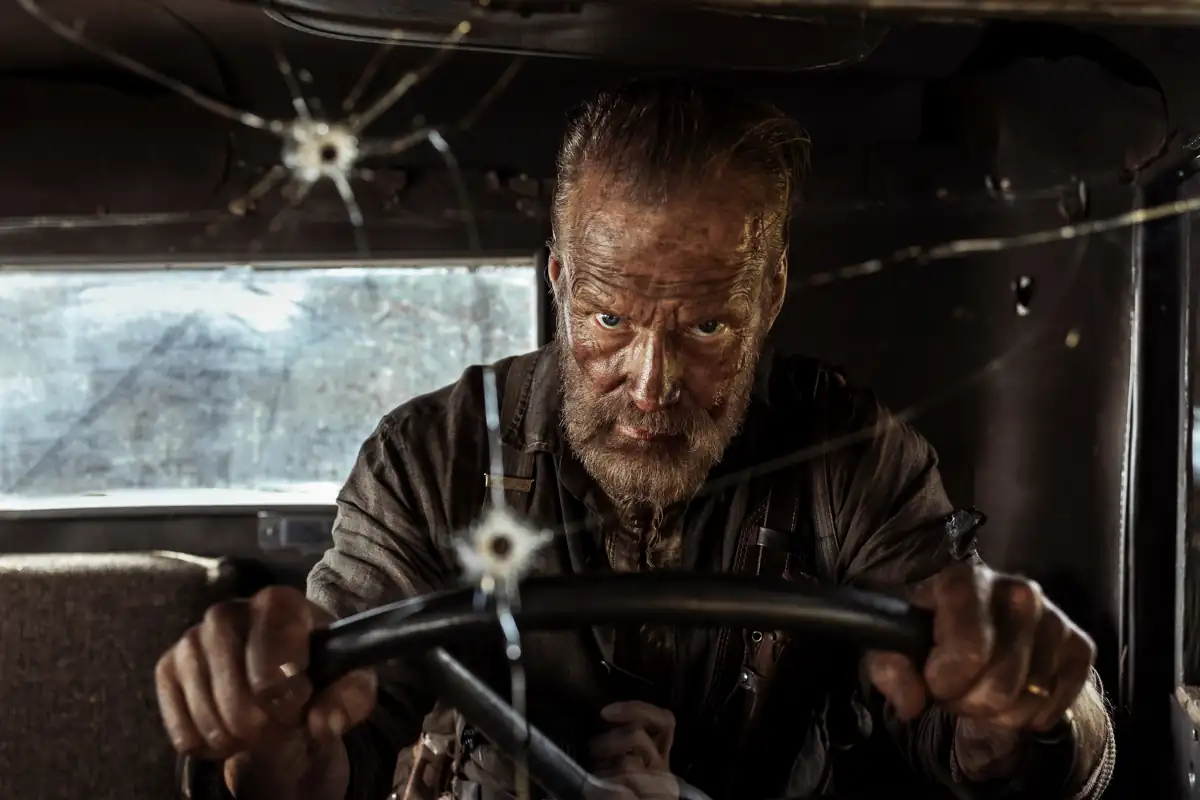(THEM premieres on Amazon Prime Video April 9th)
Heading West
Throughout its ten-hour runtime, THEM aims at a multitude of themes and issues. Not all of them stick. At its core, THEM is a series about everyday racism faced by minorities in America. It’s also about the societal and generational trauma of those perpetrating this violence. There are themes about maternity, historical transgressions, cultural eradication through popular culture, and built-in misogyny in a patriarchal society.
It’s a lot, and not all of them work as well as showrunner Little Marvin probably hopes. But here’s the thing: They don’t need to. THEM is intensely ambitious, extensively literary both as a historical and pop-culture argument, and an emotionally exhausting thriller. If it misses a few swings, it doesn’t matter. All the others are home runs.
Set in the 1950s, when the black population of America left the Jim Crow-riddled south for better lives elsewhere, at the time of the great migration. But America being America, this rarely provided the kind of salvation many hoped. Such is the case with the Emory’s, arriving in Compton’s all-white neighborhood in Los Angeles. (Yes, that Compton.) Immediately met with growing hostility, the already traumatized and fractured family must face demons both outside and within if they’re to survive the coming events.
Suburban nightmares
The setting and stylization are immediately familiar to fans of horror cinema. THEM lifts elements from haunted house films, David Lynch, and even, to a degree, from the demented cinema of John Waters to maximum effect. Every sound becomes amplified, every staircase is ominous, and, naturally, there’s a basement that never seems fully lit. These traditional elements take their time to find a natural rhythm, and the early scares aren’t indicative of where the series takes us.
Instead, it’s their neighbor, Betty, who provides the most horror right off the bat. Played with terrifying efficiency by Alison Pill, she’s the ultimate Karen from hell. A busybody infatuated with the idea of a perfect (and perfectly white) neighborhood, where she and her husband reign supreme. Thankfully, Marvin and his team of writers refuse to give Betty the easy way out as a caricature. Instead, she’s a fully rounded individual, trapped in an abusive marriage and a misogynistic society she can’t escape. It doesn’t excuse her in any way, but it does provide a larger context a more simplistic take would ignore.
Pill mines the part for brilliant character beats, effortlessly moving between open hostility through forced smiles and meek submission as she navigates life in suburbia. THEM never casts her in a sympathetic light, but it allows the audience to understand the inherent tragedy. This world is built by and for white men, and everyone else must submit to that violent rule. The entire game is rigged against us, and it makes Betty kicking at others trying to get into the proverbial lifeboat that much more despicable.
Brilliant players
Superlatives must be reserved for the leading cast as well. Deborah Ayorinde and Ashley Thomas, playing Lucky and Henry Emory, carry their complex parts beautifully. Playing a troubled couple on the run from their tragic past, Ayorinde and Thomas face truly harrowing events throughout the series, and their pain and frustration are palpable.
Thankfully, THEM is not interested in being just trauma porn (though, at times, it veers uncomfortably close to it). Marvin and his team create a world that initially feels outlandish and over the top and then quickly normalizes the further it goes. It’s a brilliant turn to allow white audiences to get an inkling of how everyday condescension and dominance of the established status quo hurts an entire population.
One of these remarkable scenes comes early on when Henry arrives at his new job. His boss (a suitably sleazy P.J. Byrne) makes every effort to emasculate and belittle him. His coworkers glare at him at every turn. There’s constant anticipation and expectation from him, even as his mundane tasks aren’t any different from the others. Henry’s daughter, Ruby (Shahahdi Wright Joseph), answers a question in class correctly, only to receive vicious ridicule in return. Instead of restoring order, her teacher sends Ruby to the principal’s office for disturbing class.
The message is clear. The expectations and demands of being a black person in America are inhumane. Even as we pretend that we’ve progressed, the double standard is buried deep within the foundations of our society. As such, nothing good grows from it.
Who it’s for
It is the supernatural elements that feel like missteps. They’re not major ones, but, at times, they do feel like they amplify that which doesn’t need it. There are demonic minstrels, burning crosses, racist old-school Hollywood tropes, and much more on display. It’s crucial and incendiary imagery, the kind that assaults the viewer’s senses with rapid-fire precision. But coming in alongside the heightened reality outside, THEM runs the risk of losing the audience to its extensively literate arguments.
But here’s where it gets complicated. I’m not the right person to talk about THEM (just as I’m not the right person to speak about LOVECRAFT COUNTRY). I’m a pasty white guy from an equally white country in the north. My education of American history, pop culture, and society comes from books and second-hand accounts. Watching THEM, I had to rewatch episodes with a notepad to make sure I got all the references, and even then, I feel like my experience with them is superficial.
So saying that I expect something to be less dense and referential comes from a place of privilege, which, in a move I didn’t expect, THEM calls out just by engaging me as a viewer. Like Spike Lee’s works, this is a series that tells you how it experiences the world, and if you can’t keep up, well, tough shit.
And it’s because THEM isn’t here to speak for a collective, objective black experience. It can’t do that, and it’s not its responsibility. Instead, it’s an emotional representation of a black experience, one that feels too familiar in a larger context of American life.
On those grounds, THEM is an incredible and harrowing experience, filled with immense dread and terror, only occasionally peppered with passing moments of catharsis. From the Saul Bassian opening credits to the hard-hitting needle drops, it grabs the viewer by the collar and shakes them for a solid ten hours.
Yes, there are quibbles. Yes, it’s a little too long. No, you don’t get answers or perfect closure. Yes, it’s heavily indebted to a ton of other things.
No, none of that matters. This is passionate storytelling of clear vision. We should cherish it, warts and all.





